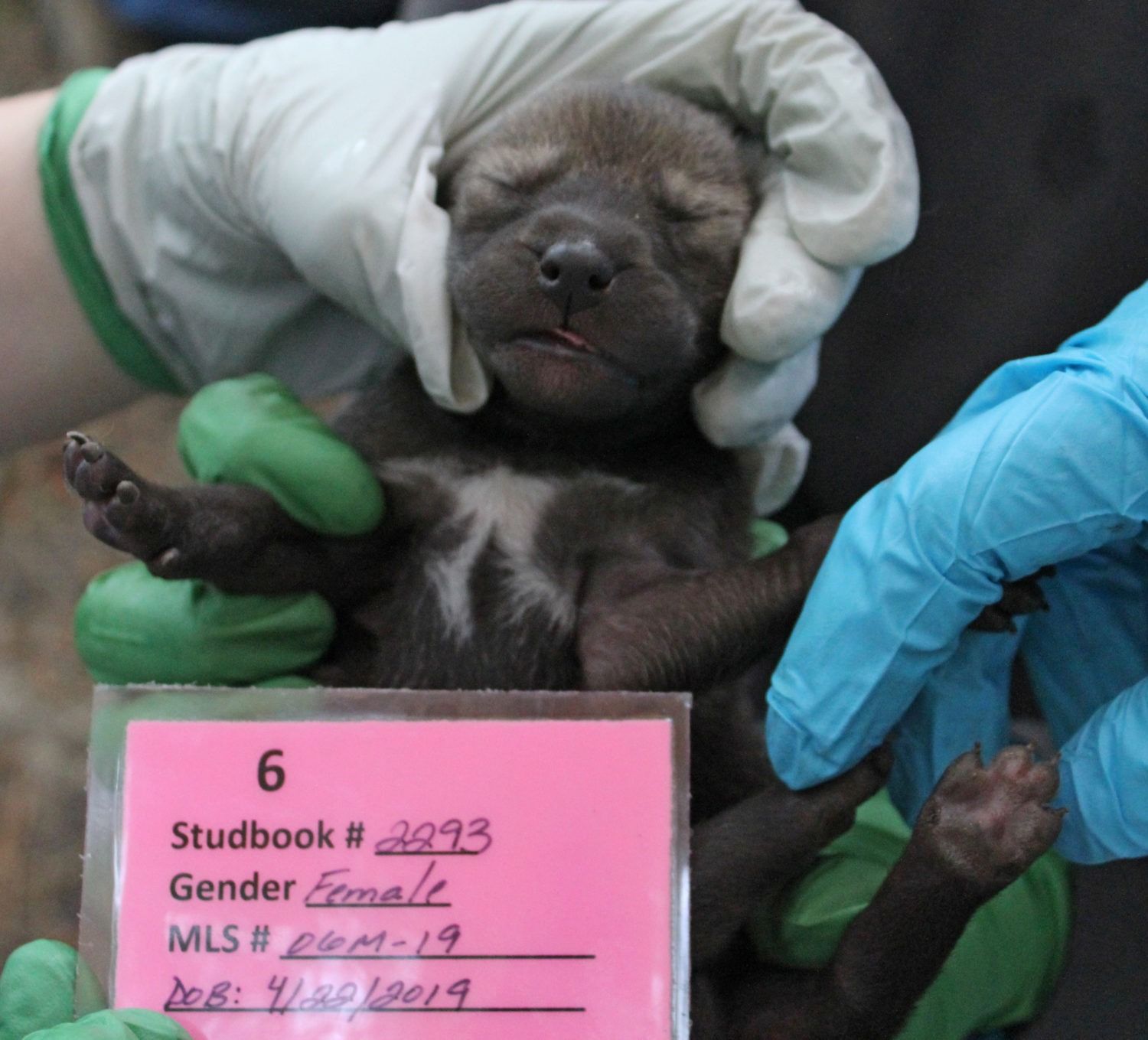Two endangered red wolves are being flown into Raleigh from New York on Wednesday as part of a “wolf swap” between Durham’s Museum of Life and Science and the Wolf Conservation Center.
A mom, dad and three pups will be moving from the Durham museum up north to the Wolf Conservation Center, where the wolves will have more space to hopefully produce more offspring. The two wolves from the New York center will be taken in as a breeding pair that will also hopefully produce offspring at the Museum of Life and Science.
This swap is part of an ongoing effort to help boost the species’ population. Red wolves are federally protected and carefully managed, with breeding decisions coordinated to preserve genetic diversity.
Once a thriving top predator across the southeastern United States, the red wolf is a classified critically endangered species, with fewer than 300 under human care and in the wild combined.
Wolves are typically given two to three years to bond and breed before new pairings are considered. This is also a very special homecoming moment for one of the wolves—Caroline—who was born at the Museum of Life and Science.
 Baby red wolf Caroline is set to come back home to Museum of Life and Sciences with her new mate.
Baby red wolf Caroline is set to come back home to Museum of Life and Sciences with her new mate.
The swapped wolves will be transported by Pilots To The Rescue (PTTR), a nonprofit that transports at-risk animals from under-resourced shelters to rescue and adoption centers where they can receive care and find loving homes.
PTTR founder, executive director and chief pilot Michael Schneider said their organization has worked with the Wolf Conservation Center for over five years.
“It’s a privilege that we get to transport these wolves and pups and help move the needle in terms of repopulating these critically endangered wolves,” Schneider said. “As you can imagine, these wolves can’t go on commercial cargo. They can’t go on a plane…it’s too stressful, and they can’t go on the road.”
He added that their organization usually brings wolves down from the north and bring animals that are at risk of being euthanized back up north. PTTR helps transports at-risk animals ranging from cats and dogs to foxes and sea turtles.
“The Museum of Life and Science is proud to partner with Pilots to the Rescue in moving seven Red Wolves across the country,” said Sherry Samuels, Senior Director of Animal Care at the Museum of Life and Science. “Having Pilots to the Rescue join our conservation efforts to save the Red Wolf shows how broad support for America’s wolf goes.”
The Museum of Life and Sciences in Durham reopened their red wolf exhibit in June after it welcomed the birth of three pups, which should be about six-months-old as of November.
WRAL’s Kirstyn Clark and Miles Moraitis contributed to this report.

